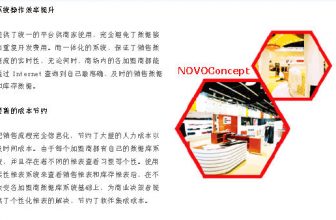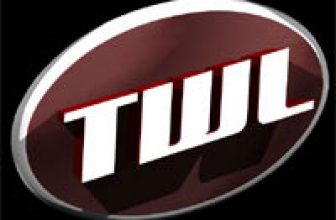
Bicycle store Uptown Cycles adopts EPC Gen 2 program to boost sales
[ad_1]
When customers buy bicycle products at the Uptown Cycles specialty store in Charlotte, North Carolina, they can trade at an RFID kiosk, which saves time in queuing for manual checkout. The kiosk is a component of Freedom Shopping’s RFID system, which improves product safety while reducing waiting in line and achieving precise inventory management.

Service kiosk
In September 2009, the store began to adopt an RFID system, using a UPM Raflatac UHF EPC Gen 2 inlay label on bicycle products, and a handheld RFID reader and a Zebra printer for new arrivals in the store. Perform label printing and coding. The retailer also installed a Freedom Shopping security door at its exit, and used an RFID antenna to read the unique ID code of the label of the out-of-store commodity to prevent theft.

EPC Gen 2 label on product packaging
Uptown Cycles is a bicycle store and training institution that opened a year ago. It provides a variety of services, including bicycle training and guidance, service and repair, high-priced products such as bicycles, and a variety of low-priced products such as parts and accessories , Clothing and food. Employees provide services in both the store and the training venue, and can travel back and forth between the two.
For some regular customers who frequent the store, they know very well what they want (such as an accessory or drink) and where they are located; while other customers (such as buying and selling bicycles) need help from shop assistants. However, only a few employees are present in the store at any time, which cannot meet the needs of customers. Therefore, retail stores hope to adopt a system that allows shop assistants to allocate time to users who need assistance in the store and training ground, and customers who are in a hurry to quickly pass through the cashier channel.
The FLiP system is designed by Freedom Shopping-a Microsoft Dynamics RMS POS system that integrates self-service kiosks and Uptown Cycles. In this way, according to Rob Simmons, Freedom Shopping’s marketing director, it can make shopping faster without having to pull the clerk away from other customers.
When the new product arrives at the store, the employee scans the barcode on the product packaging, and then uses the Zebra RZ40 printer to encode and print the RFID label. The unique ID code of the label corresponds to the item bar code in the FLiP system software of the Uptown back-end system and the product details. Then the label can be directly pasted on the packaging of the item.
At the checkout, customers have two choices: one is to bring the goods to a manual cash register and the employee scans the SKU barcode to kill the RFID tag; the other is to use the self-service kiosk directly. When using a self-service kiosk, shoppers place the goods on a countertop embedded in the kiosk, and an RFID reader reads the unique ID code on the RFID tag of the product. Freedom Shopping’s FLiP software locates the product SKU barcode corresponding to the tag ID code, and then sends the information to the retailer’s existing POS system, so that the store database knows that the product has been purchased. At the same time, the FLiP software also upgraded the inventory, indicating that the item has been removed. The customer then scans the credit or debit card and receives the receipt. When the transaction is completed, the reader kills the tag.
When leaving the store, customers pass through the FLiP security gate. Antennas are installed on both sides of the gate and connected to a fixed RFID reader. If the tag is not killed-meaning that the product has not been purchased-the reader reads the tag’s ID code, the FLiP software triggers an audible alarm, and at the same time upgrades the inventory system to indicate that the product has been removed from the store. In this way, the store manager can know which item was removed.
The inventory tracking effect of this system is also very good. Uptown Cycles manager Chris Sheehan said that customers like to use kiosks. In the next few months, Sheehan hopes to expand the system’s functions and improve customer shopping experience by providing suitable multimedia functions to kiosk users.
This set of solutions fully demonstrated the convenience of Freedom Shopping implementation, Simmons said, can be directly integrated with the existing POS system in the store. “Our goal is to simplify the RFID system so that it can be plug and play. This system has four application options: using tags, software and a handheld computer for single inventory management; inventory management and safe entrance and exit management; inventory management, security Management and service kiosks; all the above functions plus a cash transaction function at the kiosk. Depending on the application options, the system cost is between $12,000-$35,000.
According to Sheehan, the main benefit of Uptown Cycles is improved inventory accuracy. Because every item is tracked by RFID when it leaves the security door from when it arrives at the store to when it is purchased, it reduces the possibility of items being stolen.
[ad_2]





